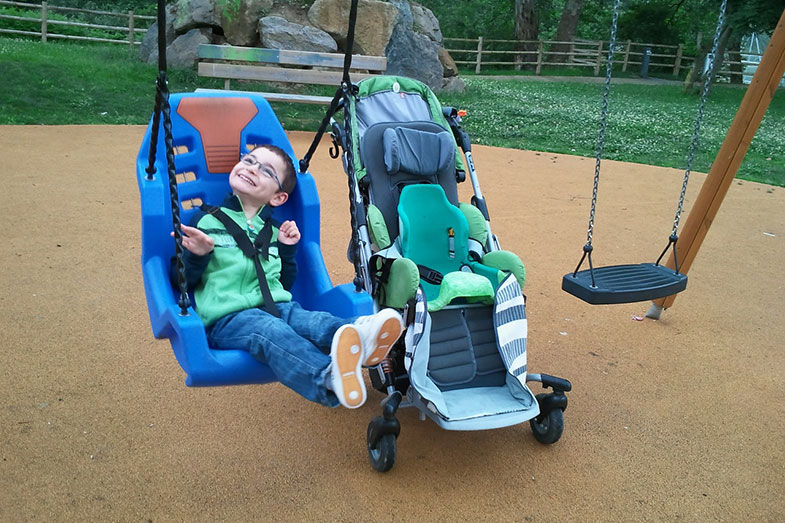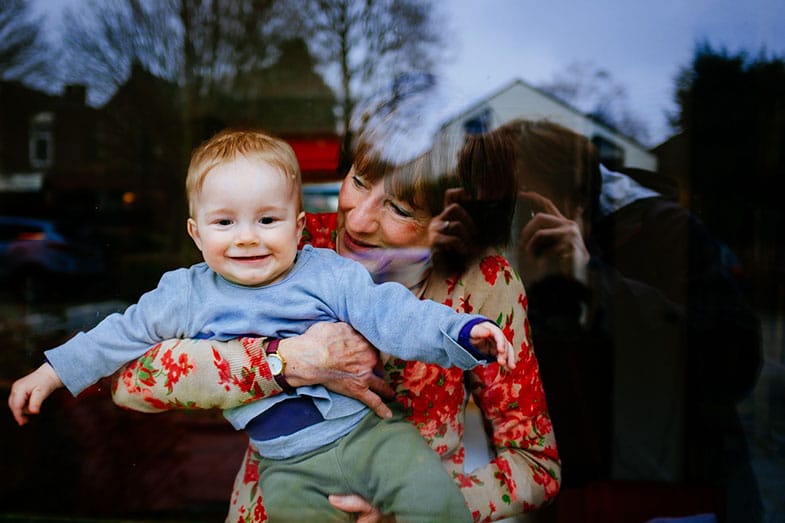For the last 30 years, the American family has been shaped by modernization and societal changes. The rich culture has become more diverse and acceptable. In today’s family makeup, you would see a family with two fathers or mothers, single parents, extended family, and others. Of course, along with this is retirement.
Additionally, retirement does not stop with two persons only. There are different kinds of retirement plans, which includes children with disabilities. Retiring with a child with special needs is quite challenging. To be honest, it’s also costly. However, what matters is that there are services, lifestyle, and care the child can receive in case the parents pass away.

Services
A retirement plan is an important decision in every family. American families mostly used the 401 (k) to beef up money as much as possible and maximize the monthly security payment. If you’re planning for retirement that includes a child with special needs, it becomes more crucial and challenging.
Government services provide benefits for kids with disabilities but with limitations. The government benefits supply a monthly income for a family or any primary caregiver that stays with the child with a disability. This benefits may include the following:
- Transportation
- Medical care
- Daily-life skills services
- Therapies
- Support for housing
However, with all these benefits the government can provide, it does not cover the child’s services for sustenance until it becomes an adult. That is why additional funds are needed to ensure that there is a continuous service for the child. For a family to get additional funds, the child can only get a $2,000 maximum support and benefits, which is quite a dilemma for parents.
Special Needs Trust is a unique way of helping the child with special needs, so they will be able to receive services without affecting the benefits the government provides. Maximizing the 401 (k) is a good solution for retirement, only if it does not include children with disabilities.
Special Needs Trust comes with crammed tax brackets. By that, it means that if the income is within the special needs trust range, the federal tax could blow up to 39.6% without state tax. The state tax depends on where you live, which could cripple your financial plan. It is much better to have an attorney with expertise in special needs trust engaged with you so would be able to see the best option for you.
Parents must think and plan extensively on what to do when retiring with a child with special needs.
Here Are Some of the Essential Things to Consider When Planning for Retirement:
- List down all the liabilities and assets, annuities, policies, and pension
- Review the retirement plan if it includes options for children with special needs
- Use the equity plan; the possibility of refinancing should be analyzed
- Pros and cons of social security should be analyzed
- Protect the assets by making provisions should long term care arise
- Analyze all options for eligibility
- If you have current life insurance, make sure to review it and see if there are options for children with disabilities
- Determine the amount of financial assistance for your child with a disability
- Engaged with the right attorney
- Analyze if you need a residential plan for your child
- Be mindful of the inflation as it is a determining factor of insurance
Always consider seeking professional help if you’re having difficulty with the retirement plan of your child. Also, try to search for someone with a situation that you think is similar to yours. They can provide help and guide you in the right process. Remember, the proper decision for retirement is a lifetime.
Retirement Guide For Parents With a Special Needs Child

With over 40 million American citizens suffering from a disability, the retirement decision of parents should not be put at stake. Of course, parents only want things that will benefit their child. However, it is also a fact that people will get old, and there might be no one who could take care of the disabled child. This is when a retirement plan for a child with special needs to take place. Apart from that, parents are advised to plan earlier, so when they retire, they can enjoy their retirement.
Below is the guide a parent need to when retiring with a child with a disability:
Financial Implications
When planning for retirement together with a child with special needs, it is important to reconsider its financial implications. The SSDI or Social Security Disability Insurance, Medicaid, and SSI are the government services that can provide help to your child. However, because it’s limited, it is essential to check for other options such as purchasing life insurance so it can be of assistance when you retire.
Legal Protection
Make sure to put in place all legal action you need to take before you retire. Government benefits for special needs children are limited, so it is better to consider what to do to avoid problems during your retirement. As mentioned earlier, special needs trust is essential for your child’s quality of life. The Special Needs Trust is composed of two trust parties – first-party trust and third-party trust.
The first party is all about payback, which means that when a beneficiary dies, whatever amount of money is left from the trust will be used to repay the government. For the third party trust, family members will get any money left by the beneficiary.
Investments such as ABLE account is an investment dedicated for children with disabilities. This is used for job training, medical treatment, administrative fees, legal and housing fees, education, and assistive technology. This investment does not affect government benefits.
Support Team
There is always a support team that can help you and your child with special needs from the time you retire. This support team can be someone from your family or a retirement community that accepts families with disabled children.
Care And Support
When you retire, it can be challenging for you to take care of a child with special needs. There is a need for extensive care and support, whether physically or emotionally. As you get old, it could be difficult for you to take care of your disabled child. It is essential to look for a retirement community that can not only cater to retirees but also children with special needs.
If you’re looking for an inclusive community, CovaiCare is the best place to retire together with your disabled child.
CovaiCare Helps Children with Special Needs
Most likely, your mind would be bombarded with many questions about retirement. Some of the possible questions are as follows:
- How can he be protected?
- Who will take care of my child?
- How much is the cost?
- What would be the coverage if something happens to my child?
- Can I have an assurance that my child will not be abused after I pass away?
- Is there a medical coverage once they get old?
- Does a retirement community offer life skills lessons for my child?
The assistance for children with special needs is imperative, and constant care should be one of your top priorities. CovaiCare, which was created in 2004, pioneered the retirement community, intending to help retirees, senior citizens, and children with special needs. The retirement community is a residential faction that is inclusive and empowering.
To be part of the community, retirees that have children with special needs are given the master document intended for Persons with Disabilities (PWD). It offers a public trust, a private trust, and an inclusive beneficiary trust.
Housing Ideas for a Retiree with a Disabled Child
The scarcity of housing for people with special needs is becoming a big problem in the United States. It’s one of the biggest challenges to retire and live in a community with a special needs child. That said, a group of great minds in New York has somehow found a solution for retirees that have a disabled child.
The Brielle in New York is a living facility that currently houses 96 seniors, including children with special needs. It has a 188 capacity, built for seniors and disabled children. The amenities are also available for both such as doctors, nurses, therapies, laundry services, housekeeping, and more. Additional in-house amenities are also covered like yoga, art programs for children with special needs, and seminars about essential programs involving children with special needs.
The assistive facility also plans to make a co-habitat living for an adult with special needs. This means that there would be housing available for adults with difficulties.
Final Thought
Although it is difficult to retire with a child with special needs, there are still options to make sure that they receive the same security, support, and care. Regarding this matter, a good thing to do is to engage with an expert and professional lawyer so that you will be guided with policies, insurance to take, refinancing if needed, and all the other things you have to do before you retire. That way, you would still be able to enjoy your retirement even if you have a child with special needs with you.
